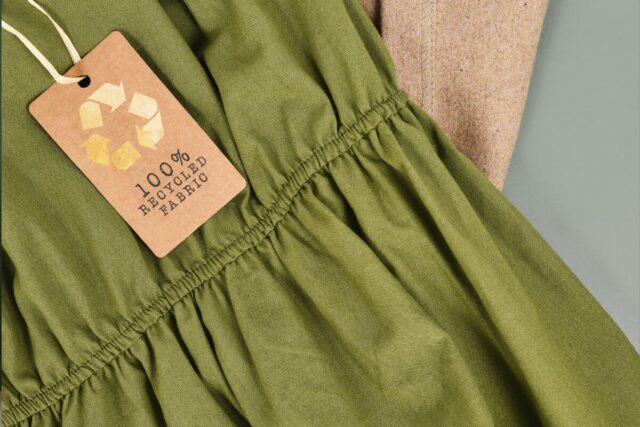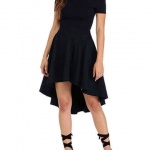Introduction to Sustainable Fashion
Sustainable Fashion: Making Ethical Choices for Your Custom Clothing Needs
Introduction to Sustainable Fashion
Sustainable fashion is an approach that seeks to minimize the environmental impact and promote ethical standards in the fashion industry. For those looking to blend personal style with ecological consciousness, custom clothing like Hawaiian shirts offers a unique opportunity. These shirts add a splash of color and fun to your wardrobe and serve as a statement of your commitment to sustainability. Sustainable fashion is gaining traction as more people seek environmentally friendly and ethically sourced clothing options. One way to blend personal style with sustainability is through custom clothing, such as Hawaiian shirts. These vibrant, often floral shirts are not just for tropical vacations—they can be a canvas for expressing eco-conscious choices.
Choosing Sustainable Fabrics
The choice of fabric plays a pivotal role when selecting custom Hawaiian shirts. Sustainable options include organic cotton, which avoids the harmful pesticides used in traditional cotton farming
and recycled materials, which help reduce waste. Fabrics like bamboo and hemp are also excellent choices due to their low environmental impact and natural durability.
When considering custom Hawaiian shirts from a sustainable perspective, several key factors should be considered. Firstly, the choice of fabric is crucial. Opt for materials that are organic, recycled, or derived from sustainable sources such as bamboo or hemp. These fabrics reduce environmental impact and often offer superior comfort and durability.
Ethical Manufacturing Practices
It’s crucial to consider how and where your custom Hawaiian shirts are made. Look for manufacturers that adhere to fair labor practices, providing workers with safe working conditions and fair wages. Additionally, manufacturers that implement environmentally friendly production processes, such as reduced water usage and non-toxic dyes, further contribute to the sustainability of the clothing. Another aspect is the manufacturing process. Look for producers who use ethical labor practices, ensuring fair wages and safe working conditions for their employees. Choosing manufacturers that employ eco-friendly production techniques, such as water-based inks for printing and minimizing chemical waste, is also beneficial.
Design and Longevity
Sustainability in fashion also involves designing clothes that last. Opt for custom Hawaiian shirts with timeless appeal rather than trendy designs that quickly go out of style. High-quality construction and durable materials mean the shirts can be worn for many seasons, reducing the need for frequent replacements and thus lessening waste. Additionally, consider the lifecycle of the clothing. Sustainable fashion isn’t just about materials and production—it’s also about longevity and end-of-life disposal. Choose designs that are timeless rather than trend-driven, encouraging longer use. For disposal, seek options for recycling or composting the shirt if it’s made from biodegradable materials.
End-of-Life Considerations
Plan for the end of your custom Hawaiian shirt’s lifecycle. Choose biodegradable or recyclable materials to ensure that your fashion choices remain eco-friendly even after the shirt is no longer wearable. Some companies offer recycling programs, or you can donate well-maintained garments to extend their life.
Supporting Small and Local Businesses
Purchasing your custom Hawaiian shirts from small or local businesses can also have a significant positive impact. Smaller producers are likelier to use artisanal techniques that preserve traditional crafts and have a smaller carbon footprint than larger manufacturers.
Supporting small businesses or local artisans who make custom Hawaiian shirts can contribute to sustainability. These smaller-scale producers often have a smaller carbon footprint than large manufacturing units. They may also be more likely to engage in unique, artisanal techniques that preserve cultural heritage while creating less waste.
Myths regarding sustainable fashion
While increasingly popular, sustainable fashion is often surrounded by myths and misconceptions that can confuse consumers and hinder the adoption of more environmentally friendly practices. Here are some common myths about sustainable fashion:
Myth 1: Sustainable Fashion is Too Expensive
Many people believe that sustainable fashion is significantly more expensive than conventional clothing. While it’s true that ethically made garments using high-quality, sustainable materials can have a higher upfront cost, the price reflects fair labor practices and the use of eco-friendly materials. Moreover, sustainable clothing is often more durable and designed to last longer than fast fashion items, making it more cost-effective in the long run.
Myth 2: There Are Limited Choices in Sustainable Fashion
Another misconception is that sustainable fashion means sacrificing style for sustainability, offering only basic or outdated designs. However, the reality is quite different. Many sustainable brands are at the forefront of fashion, offering various styles, colors, and prints, including trendy and innovative designs. The variety of sustainable options expands as more designers and companies commit to ethical practices.
Myth 3: Natural Fibers Are Always Better
While natural fibers like cotton, linen, and wool are often touted as environmentally friendly, they aren’t automatically sustainable. For example, conventional cotton farming can be extremely water-intensive and heavily reliant on pesticides. The sustainability of natural fibers depends on how they are sourced and processed. Organic and responsibly sourced natural fibers are generally more sustainable.
Myth 4: Recycling Clothes is Enough to Be Sustainable
Recycling old clothes is beneficial, but more complete solutions exist to the fashion industry’s environmental challenges. Recycling processes can be energy-intensive and still produce waste. A more sustainable approach includes:
- Reducing overall consumption.
- Purchasing high-quality items that last longer.
- Supporting brands that take back worn garments to repurpose or recycle them.
Myth 5: Sustainable Fashion Can’t Make a Real Difference
This myth underestimates the impact that individual choices can make. The fashion industry is one of the largest polluters globally, and changes in consumer behavior can drive significant changes in how companies operate. By choosing sustainable fashion, consumers encourage more brands to adopt ethical practices, ultimately leading to broader industry shifts.
Addressing these myths and spreading accurate information is vital for encouraging more people to make sustainable choices in their fashion consumption.
Conclusion
Making ethical choices in fashion, especially when designing custom garments like Hawaiian shirts, allows you to express your style while adhering to sustainable practices. Choosing the right materials, manufacturers, and designs contributes to a more sustainable future and supports ethical labor practices, making fashion a force for good.
In conclusion, when choosing custom Hawaiian shirts or any garment, opting for sustainable options helps the planet and supports ethical labor practices. It’s a way to enjoy unique, personal fashion without compromising on values that matter for a sustainable future






Leave a Reply